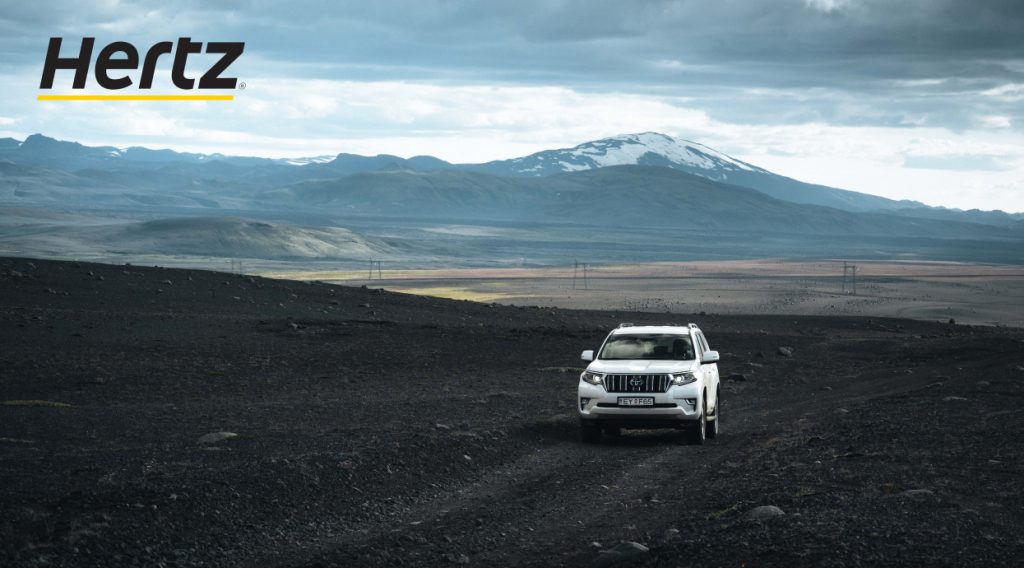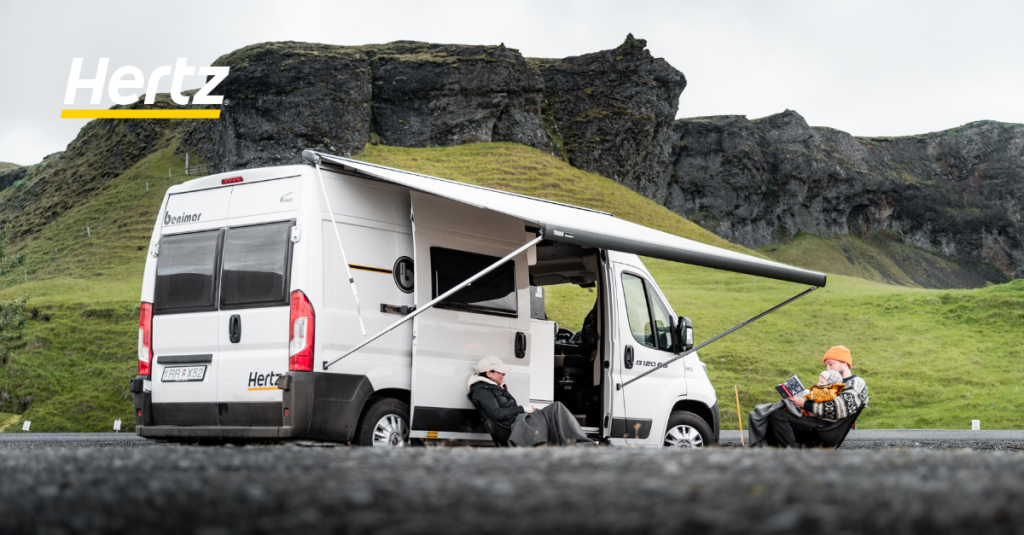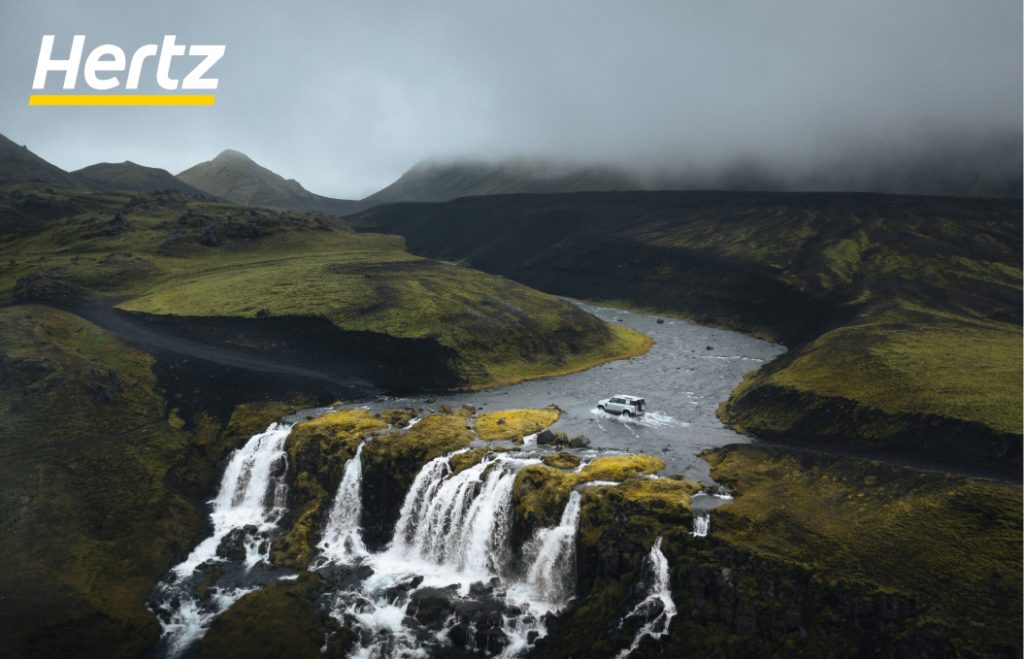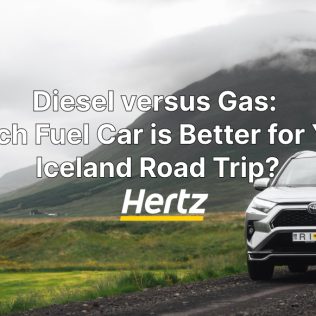Planning a road trip in Iceland? One of the important decisions you’ll need to make is whether to rent a diesel-powered car or a gas-powered vehicle.
Understanding the differences between gasoline and diesel, and knowing which one suits your needs can make your trip smoother and more cost-effective. In this guide, we’ll compare diesel versus gas in terms of fuel economy, performance, and cost, especially in the context of driving in Iceland.

How Diesel and Gasoline Engines Work
When it comes to powering vehicles, diesel and gasoline engines are the two most common types. Although they serve the same purpose, these engines operate differently, which affects their performance, fuel efficiency, and overall suitability for different driving conditions.
The Role of Compression in Diesel and Gasoline Engines
At the heart of the difference between diesel and gasoline engines is how they handle compression. Diesel engines work by compressing air to a much higher degree than gasoline engines. This process creates intense heat, which ignites the diesel fuel injected into the combustion chamber.
In contrast, gasoline engines rely on spark plugs to ignite the fuel, as the compressed air in these engines doesn’t reach the necessary temperatures for self-ignition. This fundamental difference in how the engines work is why diesel engines typically have higher compression ratios and can produce more torque than gasoline engines.
Fuel Requirements and Ignition Differences
The distinct way these engines operate necessitates different fuel types. Diesel fuel, known for its higher energy density and lower volatility, is less prone to evaporation and can power engines that carry heavy loads over long distances. On the other hand, gasoline, which ignites more easily and burns cleaner, is better suited for lighter, more efficient vehicles. Understanding how each type of engine ignites the fuel helps explain why diesel-powered vehicles are often chosen for their durability and fuel economy, particularly in demanding driving conditions.

Fuel Efficiency and Performance: Diesel vs. Gas in Iceland
Fuel Economy: Diesel vs. Gasoline in Iceland
Fuel economy is a critical factor for anyone planning to drive in Iceland, where distances between destinations can be long, and fuel prices are relatively high. Diesel engines are generally more fuel-efficient than their gasoline counterparts.
This efficiency stems from diesel’s higher energy density, which means that diesel engines can extract more energy from each liter of fuel. For travelers planning to drive around Iceland’s famous ring road or navigate the challenging F-roads of the Highlands, choosing a diesel-powered car can lead to fewer stops at gas stations and significant savings over the course of the trip.

Cost of Fuel in Iceland
In Iceland, the cost of diesel fuel and gasoline fluctuates, but diesel is often slightly cheaper than gasoline. However, even when diesel is priced higher per liter, its superior fuel efficiency can make it more cost-effective for long-distance travel.
It’s important to note that while fuel prices in Iceland are generally higher than in many other countries, the advantage of diesel in terms of fuel economy becomes evident when you’re covering large distances. Before setting out on your journey, it’s wise to check the current fuel prices in Iceland to factor these costs into your Iceland travel budget.

Performance on Icelandic Roads
Handling Heavy Loads and Tough Terrain
Iceland’s challenging landscapes require vehicles that can manage tough conditions. Diesel vehicles excel in this area due to their higher torque, which is particularly useful on steep inclines, rough roads, and in strong winds—common in Iceland. Whether exploring the remote Highlands or navigating gravel roads, a diesel-powered vehicle provides the power and stability needed for a safe and comfortable journey.
Life Expectancy and Maintenance Considerations
Diesel engines are known for their durability and typically last longer than gasoline engines, thanks to their robust design. However, they may require more specialized maintenance, especially in Iceland’s colder climate. If you’re planning a long stay or renting for an extended period, a gasoline vehicle might be preferable due to potentially lower maintenance needs.

Making the Right Choice for Your Iceland Road Trip
When to Choose a Diesel Vehicle: Long-Distance Driving and Navigating Iceland’s Highlands
If your Iceland road trip includes long stretches of driving, such as circling the ring road or venturing on multiple day trips to distant locations, a diesel vehicle is likely the best choice. Diesel engines offer superior fuel efficiency, helping you save on fuel costs and enabling you to spend more on experiences rather than at the pump. This efficiency is especially beneficial in remote areas where gas stations are scarce.
Additionally, for those planning to explore Iceland’s rugged Highlands, a diesel-powered vehicle is almost essential. The challenging F-roads, with their steep inclines, rocky terrain, and river crossings, demand a vehicle with ample torque and durability. Diesel engines, with their higher compression ratios and greater power output, are well-suited for these tough conditions, ensuring you can navigate even the most rugged paths with confidence.

When to Choose a Gasoline Vehicle: Shorter Trips, City Driving, and Lower Rental Costs
If your plans involve shorter trips, such as exploring Reykjavik or nearby attractions, a gasoline-powered vehicle might be ideal. Gasoline engines are generally smoother and quieter, providing a more pleasant driving experience in urban areas. Additionally, gasoline vehicles typically have a lower upfront rental cost, making them more economical for short-term rentals or trips that involve limited driving. If you’re sticking to paved roads in and around major cities, the cost savings and convenience of a gasoline vehicle could be the better choice for your budget.

Renting with Hertz Iceland: Your Options for Diesel and Gasoline Vehicles
Regardless of whether you choose a diesel or gasoline vehicle, Hertz Iceland offers a wide selection of rental cars to meet your needs. Our fleet includes both gas and diesel engines vehicles across all categories, from compact cars perfect for city driving to rugged SUVs built for Iceland’s challenging terrains.
Renting a car with Hertz Iceland provides the flexibility to explore this beautiful country at your own pace, with the assurance that you’re driving a reliable, well-maintained vehicle. Whether you’re looking for fuel efficiency, power, or comfort, Hertz Iceland has the right car for your Icelandic adventure.

